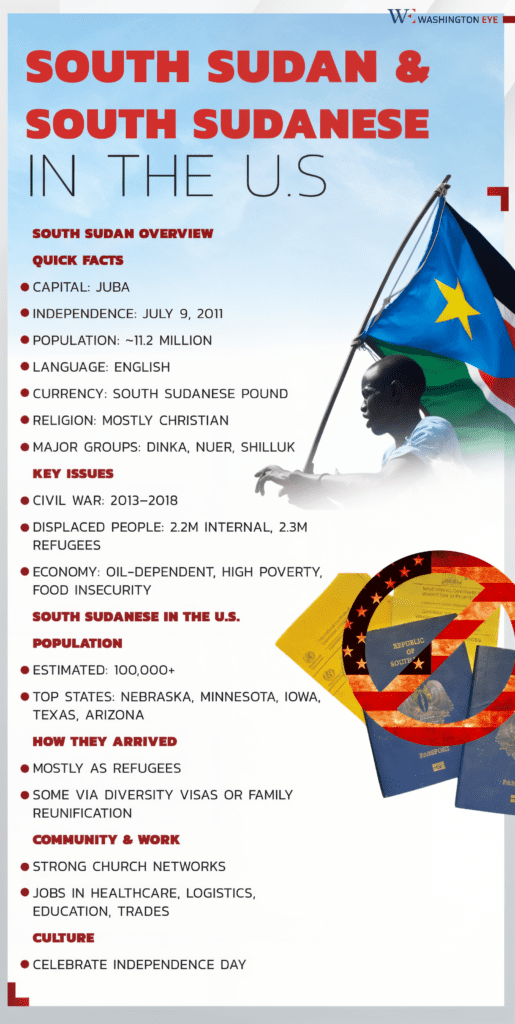In a significant diplomatic move, the United States has revoked all visas held by South Sudanese passport holders and suspended the issuance of new visas to citizens of South Sudan. This decision, announced by U.S. Secretary of State Marco Rubio on April 5, 2025, stems from South Sudan’s alleged failure to accept the return of its deported nationals, a violation of international norms regarding repatriation.
The U.S. Department of State emphasized that every country is obligated to accept the timely return of its citizens when another nation seeks their removal. According to Secretary Rubio, South Sudan’s non-compliance with this principle has led to the current visa restrictions. He stated, “Effective immediately, the United States Department of State is taking actions to revoke all visas held by South Sudanese passport holders and prevent further issuance to prevent entry into the United States by South Sudanese passport holders.”
The immediate cause of this sweeping action was an incident at Juba International Airport, where South Sudanese immigration authorities refused to admit a deportee sent from the United States. The U.S. interpreted this refusal as a deliberate act of non-cooperation. However, South Sudanese officials have contested this interpretation. They assert that the individual in question was not a South Sudanese citizen but a national of the Democratic Republic of Congo (DRC). The South Sudanese Ministry of Foreign Affairs expressed that the U.S. decision was based on a misunderstanding, stating, “The person whom the U.S. authorities tried to deport to South Sudan was not our citizen. We cannot accept individuals who are not our nationals.”
Impact on South Sudanese Nationals
The revocation affects all categories of visas, including those held by students, professionals, and visitors. Notably, South Sudanese students in the United States on F-1 visas are now facing uncertainty regarding their legal status and ability to continue their education. Universities with South Sudanese students are seeking guidance from immigration authorities to address the situation.
This development also impacts South Sudanese nationals who had been granted Temporary Protected Status (TPS) by the previous U.S. administration. TPS is a designation that allows individuals from countries experiencing conflict or natural disasters to reside and work in the U.S. temporarily. The current revocation raises questions about the future of these individuals in the United States.
The South Sudanese government has labeled the U.S. action as unjust and based on incorrect information. They have urged the U.S. to reconsider the decision, emphasizing their commitment to international obligations and cooperation on immigration matters. South Sudanese officials are seeking diplomatic engagements with their U.S. counterparts to resolve the misunderstanding and restore normal visa issuance processes.
This visa revocation occurs amid escalating political tensions in South Sudan. The nation’s fragile transitional government, established to end years of civil conflict, is facing significant challenges, raising concerns about a potential return to widespread violence. The U.S. action adds another layer of complexity to South Sudan’s international relations and may have implications for its diplomatic engagements and foreign aid considerations.
International observers note that such measures are rare and signify serious diplomatic strains. The U.S. has indicated a willingness to revisit the decision if South Sudan demonstrates compliance with international repatriation protocols. However, the differing accounts of the triggering incident suggest that resolving this issue may require detailed diplomatic negotiations.
Conclusion
The U.S. government’s decision to revoke all visas held by South Sudanese nationals marks a significant point in the diplomatic relationship between the two countries. While the U.S. cites non-cooperation in repatriation efforts as the impetus, South Sudan disputes the claim, pointing to a case of mistaken identity. The resolution of this issue will depend on forthcoming diplomatic discussions and clarifications. In the meantime, South Sudanese nationals, particularly those residing in or intending to travel to the United States, face considerable uncertainty.














